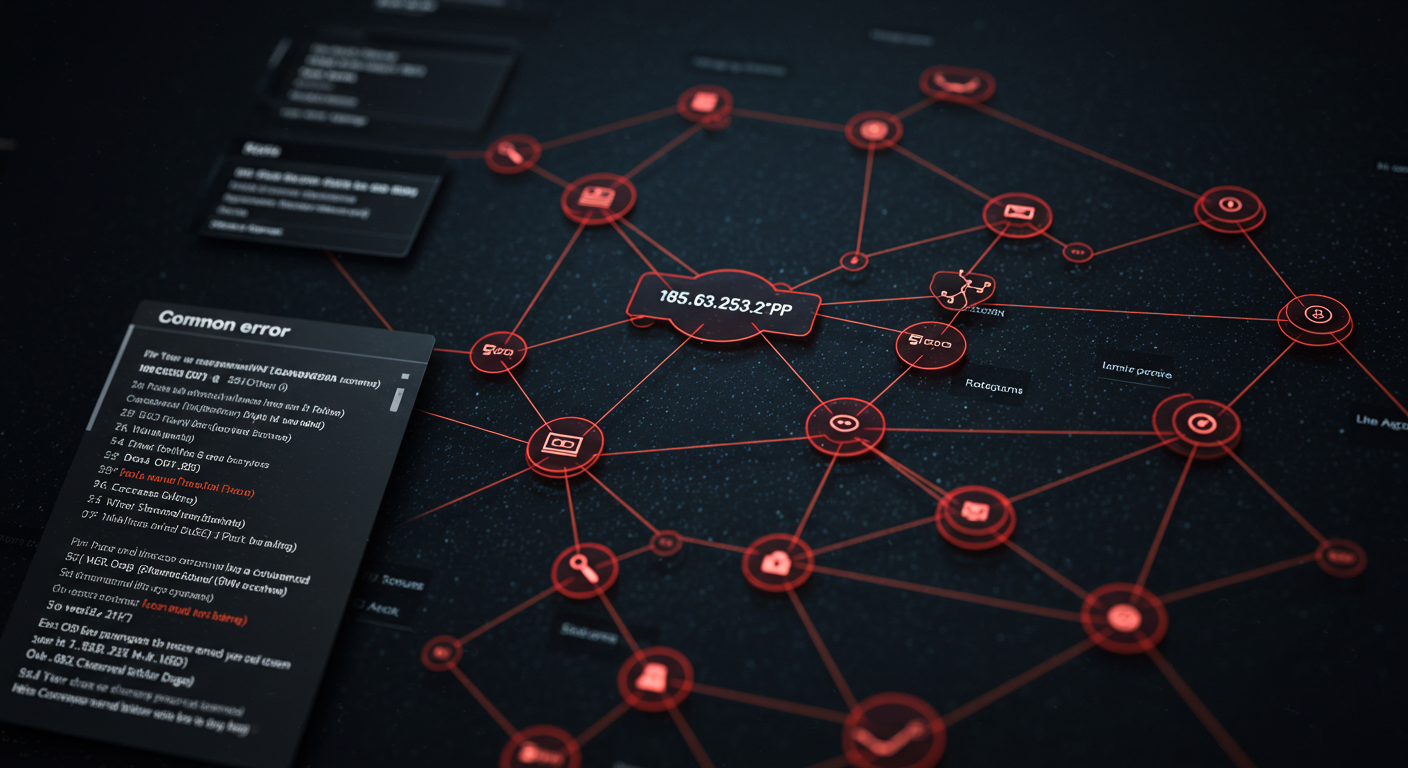In today’s digital landscape, numbers and addresses often catch our attention, especially when they resemble an IP format. One such term is 185.63.253.2pp, which has been noticed across various online searches and discussions. While it appears similar to a traditional IP address, the addition of “pp” makes it unusual, raising curiosity about its purpose, origin, and whether it carries any risk for internet users. This article explores what 185.63.253.2pp might represent, how such terms are used online, and what precautions should be taken to ensure digital safety.
What is 185.63.253.2pp?
At first glance, 185.63.253.2pp looks like an IPv4 address. IP addresses are numeric labels assigned to devices connected to the internet. They usually follow the format “XXX.XXX.XXX.XXX,” where each segment ranges from 0 to 255. However, the inclusion of “pp” at the end sets 185.63.253.2pp apart, suggesting it is not a standard IP but rather a modified or symbolic representation.
In many cases, such addresses are used in blogs, forums, or websites either as placeholders, experimental links, or coded references. The unusual nature of 185.63.253.2pp makes it important for users to understand its possible uses before interacting with it.
Common Uses of 185.63.253.2pp
Although there is no official registry for 185.63.253.2pp, terms like this often surface for several reasons:
1. Testing and Placeholder Address
Developers and web administrators sometimes create modified IP-like terms such as 185.63.253.2pp for testing purposes. They act as placeholders in documents or code examples without pointing to an actual live server.
2. Obfuscated Reference
Occasionally, online communities intentionally alter real IP addresses to avoid automatic detection or tracking. Adding letters, such as “pp,” disguises the true address, preventing unwanted bots or crawlers from indexing the real source.
3. SEO and Curiosity Triggers
Some websites publish unusual strings like 185.63.253.2pp to attract searches and clicks. The uniqueness of the keyword generates curiosity-driven traffic, which can help a site’s visibility.
4. Suspicious or Risky Links
In certain cases, modified IP-like addresses may mask unsafe or spam-related content. Users should be cautious when encountering 185.63.253.2pp, especially if it is linked to external downloads or redirections.
Risks Associated with 185.63.253.2pp
While the string itself is harmless in written form, engaging with unknown IPs or modified versions like 185.63.253.2pp can expose users to risks. Common threats include:
-
Phishing Scams – Fake links resembling IPs may lead users to deceptive sites.
-
Malware Downloads – Clicking on suspicious addresses could trigger automatic downloads of harmful files.
-
Privacy Risks – Interacting with unsafe IPs may expose personal data to hackers.
-
Misinformation – Sometimes, strange addresses like 185.63.253.2pp are used in misleading contexts to spread confusion.
Being aware of these risks ensures users make informed decisions when encountering such terms online.
How to Stay Safe Around 185.63.253.2pp
Whether you come across 185.63.253.2pp in a forum, article, or search result, it’s best to prioritize online safety. Here are some guidelines:
1. Do Not Click Random Links
Avoid directly clicking on any hyperlink connected to 185.63.253.2pp. If curiosity persists, use trusted security tools to analyze the link before visiting.
2. Use Reliable Antivirus Software
Ensure that your device is protected by updated antivirus programs. This safeguards against potential malware if you mistakenly interact with suspicious addresses.
3. Verify Sources
Check the credibility of the website or forum where 185.63.253.2pp appears. Legitimate platforms usually clarify the context of unusual terms.
4. Rely on Official IP Tools
Use trusted IP lookup services to analyze suspicious IP-like terms. Even though 185.63.253.2pp is not a standard IP, tools can still reveal useful insights.
Why Keywords Like 185.63.253.2pp Trend Online
The internet thrives on curiosity, and odd terms such as 185.63.253.2pp often trend because of human behavior. People wonder what they mean, search for them, and websites respond by publishing content. Additionally, automated crawlers and bots sometimes generate unusual strings, which then spread across digital platforms.
In SEO strategies, unique keywords like 185.63.253.2pp are sometimes deliberately targeted because they face no competition. This ensures higher chances of ranking in search results, even if the content is niche or experimental.
Practical Advice for Handling 185.63.253.2pp
When you come across , consider the following best practices:
-
Treat it as an experimental or symbolic term rather than a genuine IP address.
-
Avoid assuming it connects to a safe server.
-
Use the opportunity to learn about online security and how modified IP-like addresses work.
-
Report suspicious instances of if they appear linked to unsafe activities.
Final Thoughts on 185.63.253.2pp
The term is a fascinating example of how digital strings spark curiosity online. While it resembles an IP address, its unusual format indicates it is not standard. Such terms may be placeholders, coded references, or SEO-driven keywords. However, they can also be misused for malicious purposes, which is why users should exercise caution.
By understanding what could mean, being aware of its potential risks, and following online safety practices, internet users can stay protected while satisfying their curiosity. In an age where digital addresses carry significant importance, knowing how to interpret unusual ones like is a valuable skill for safe browsing.

